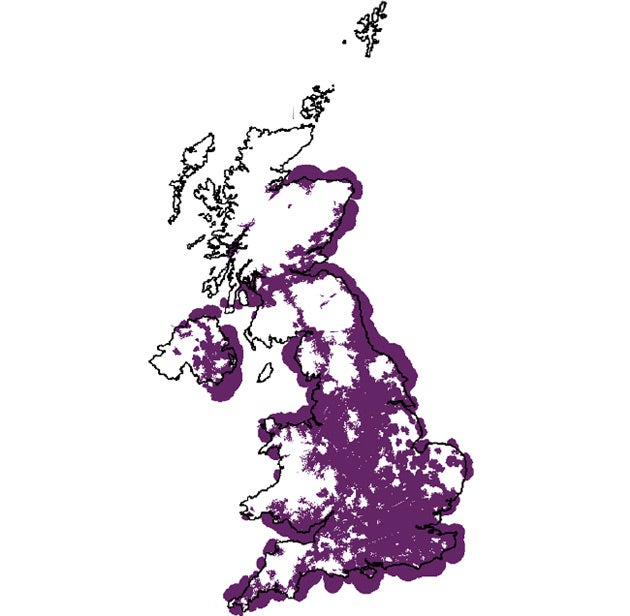'Mobile map' shows dead web areas

Your support helps us to tell the story
From reproductive rights to climate change to Big Tech, The Independent is on the ground when the story is developing. Whether it's investigating the financials of Elon Musk's pro-Trump PAC or producing our latest documentary, 'The A Word', which shines a light on the American women fighting for reproductive rights, we know how important it is to parse out the facts from the messaging.
At such a critical moment in US history, we need reporters on the ground. Your donation allows us to keep sending journalists to speak to both sides of the story.
The Independent is trusted by Americans across the entire political spectrum. And unlike many other quality news outlets, we choose not to lock Americans out of our reporting and analysis with paywalls. We believe quality journalism should be available to everyone, paid for by those who can afford it.
Your support makes all the difference.3G, the service which enables users to have simultaneous access to speech, internet and email on their mobile phones, is inaccessible across large parts of the UK, according to new maps released by the telecoms regulator Ofcom.
The maps represent the coverage provided by Vodaphone, Orange, O2, T-Mobile and 3 mobile networks. The shaded areas indicate where it is possible for customers to gain access to the internet on their mobile.
The maps show that whilst much of Britain has the ability to gain access to the internet through their mobile, there are still black-spots in coverage in south-western England, northern England, East Anglia, as well as large areas of Scotland, Wales and Northern Ireland. Despite this, internet access in Britain is better than that in comparable countries. “Coverage of mobile networks in the UK is generally good,” Ofcom said.
CLICK HERE TO SEE OFCOM'S MAPS IN FULL
The new data is of particular importance now as trends show that more and more individuals are moving away from the use of their landlines, preferring their mobiles. Ofcom revealed that the number of minutes spent on fixed land lines fell by 8 billion from this time last year. Ofcom stating that as “mobile services have become central for UK citizens and consumers and for businesses.” Forcing them to look in depth at the coverage issues found across the UK.
A range of reasons have been given as to why such access variations have occurred, ranging from landscape variations to technical problems. Ofcom aims to concentrate predominantly in the areas with no access, working in tandem with government organisations and local councils to address the problems highlighted by today’s report.
Join our commenting forum
Join thought-provoking conversations, follow other Independent readers and see their replies
Comments